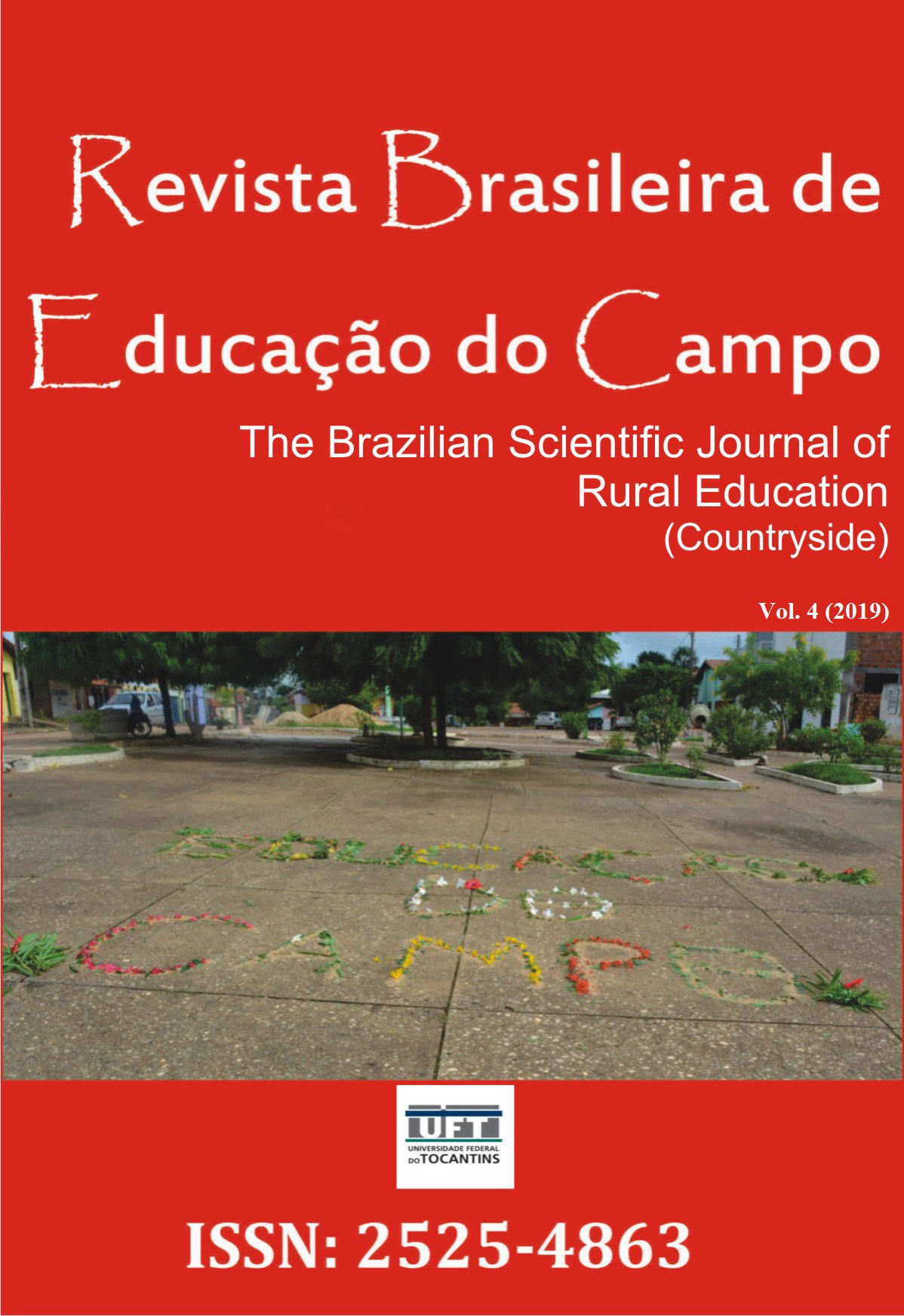Education in rural areas, Multigrade classrooms and Teacher Training
DOI:
https://doi.org/10.20873/uft.rbec.v4e3834Abstract
ABSTRACT. In this article, we present part of a research developed in Postgraduate in Education of Federal University of Sergipe (UFS), whose objective was to investigate the reality of multigrade classes regarding teachers' training and working conditions in the early stages of primary school in rural areas in a town in Bahia. It is examined some important questions related to teachers' training, especially those who teach in schools in rural areas, from data collected through questionnaires and interviews, which were analysed in light of theories on the theme. Therefore, the text is divided in three parts: in the first, we will discuss some aspects related to education in rural areas and Brazilian multigrade system in rural areas. In the second, we will specifically analyse teachers' training in a multigrade classroom, based on the results of the investigation. Finally, we will present the final considerations related to the study developed, which indicates that the government has neglected education in rural areas, especially multigrade classrooms, regarding teachers' training, one of the greatest challenges to the effectiveness of education in rural areas.
Downloads
Veröffentlicht
Zitationsvorschlag
Ausgabe
Rubrik
Lizenz
Creative Commons Attribution License
Creative Commons Attribution License
Proposal for Copyright Notice Creative Commons
1. Policy Proposal to Open Access Journals
Authors who publish with this journal agree to the following terms:
A. Authors retain copyright and grant the journal right of first publication with the work simultaneously licensed under the Creative Commons Attribution License that allows sharing the work with recognition of its initial publication in this journal.
B. Authors are able to take on additional contracts separately, non-exclusive distribution of the version of the paper published in this journal (ex .: publish in institutional repository or as a book), with an acknowledgment of its initial publication in this journal.
C. Authors are permitted and encouraged to post their work online (eg .: in institutional repositories or on their website) at any point before or during the editorial process, as it can lead to productive exchanges, as well as increase the impact and the citation of published work (See the Effect of Open Access).














